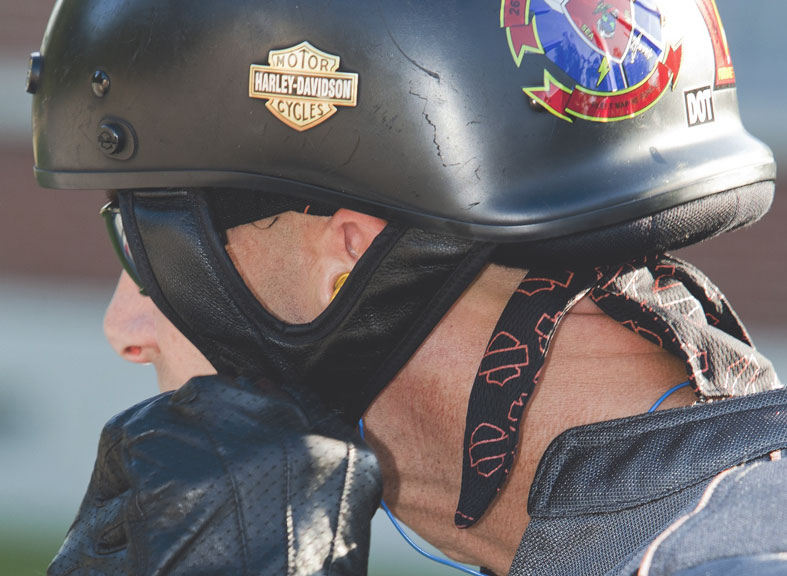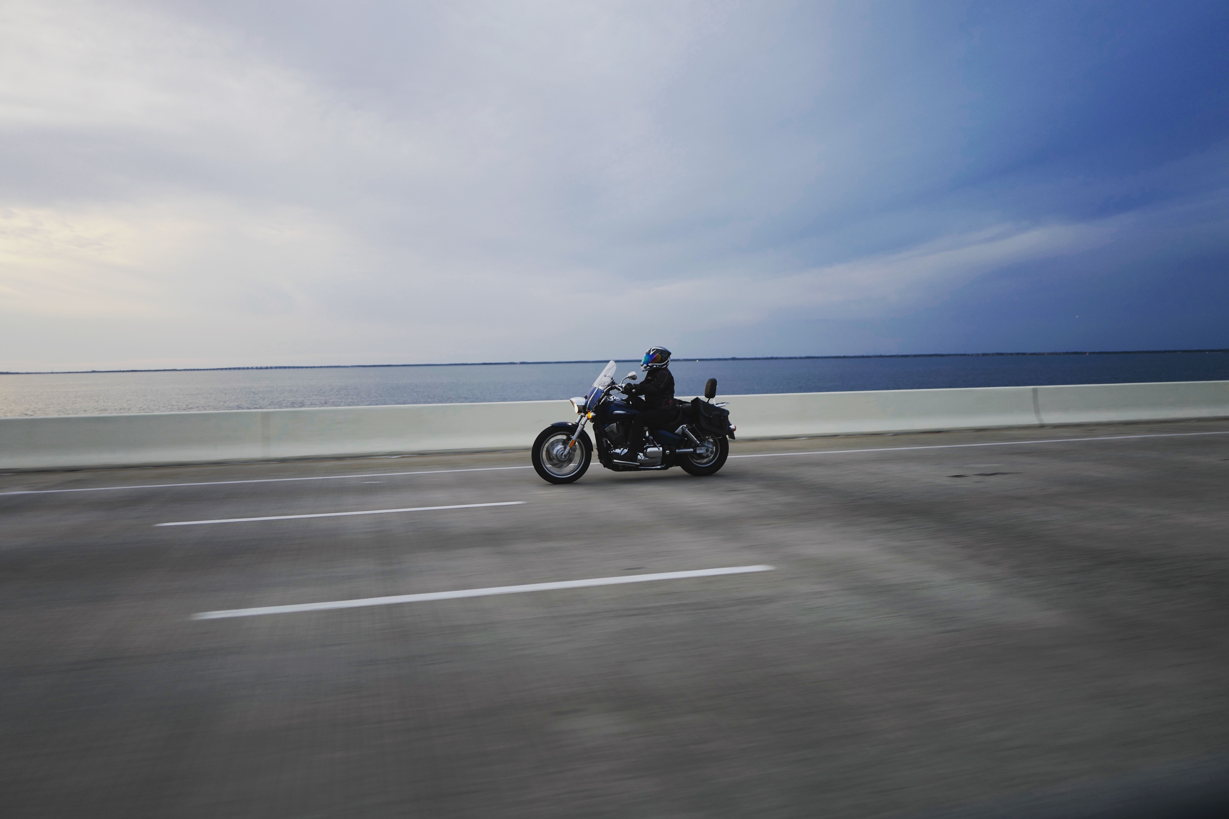How to Prevent Hearing Loss When Riding a Motorcycle
You’ve probably been lectured a million times on the various articles of safety gear you should wear when you ride a motorcycle. Whether you’ve argued about the benefits of wearing a helmet or tried to convince your mom that your leather jacket isn’t just for show, you likely have standard gear you put on as […]

June 26, 2017

You’ve probably been lectured a million times on the various articles of safety gear you should wear when you ride a motorcycle. Whether you’ve argued about the benefits of wearing a helmet or tried to convince your mom that your leather jacket isn’t just for show, you likely have standard gear you put on as part of your routine before you hit the road.
But even if you’re covered head to toe in Kevlar, you may have forgotten to protect one important thing: your hearing.
Why Riders Suffer from Hearing Loss

Roughly 15 percent of adults in America suffer from some level of hearing loss, according to the National Institute on Deafness and Other Communication Disorders (NIDCD). Exposure to high levels of noise, whether in one sharp burst or at lower levels over a period of time, can damage one’s hearing and lead to permanent hearing loss.
Motorcyclists are exposed to excessive noise whenever they ride their bike at highway speeds. It’s not the rumble of the engine that affects riders; it’s the “noise turbulence produced around the head while the rider is in motion,” commonly known as wind noise.
Wind noise frequently exceeds 100 dB at highway speed. To put that in perspective, that’s about the same level as a chainsaw. The noise level standards of the U.S. Occupational Safety and Health Administration (OSHA) limit workers to 8 hours of exposure to 90 dB. For every 5 dB increase, the amount of time is cut in half. For example, at 95 dB, OSHA states that workers can only work 4 hours safely without risking damage to their hearing.
At 100 dB, you can ride for 2 hours safely, but if wind noise reaches 115 dB, you’ll only have 15 minutes of safe riding before risking hearing loss. Wind noise can easily reach 115 dB, especially if you are not wearing a helmet.
Another contributing factor to hearing loss is Temporary Threshold Shift, or TTS. TTS is what happens when your hearing is temporarily impaired after exposure to excessive noise. Think about how your ears may ring a little bit and your hearing feels muffled after a loud concert. Many motorcyclists experience this after they ride. Although TTS has the word “temporary” in the title, that only refers to the experience of muffled hearing. That goes away, but if you continue to expose yourself to TTS, you could have permanent hearing damage.
The key lesson for motorcyclists to learn is that continuous exposure to lower levels of noise can result in hearing loss just as much as exposure to a higher level for a short period of time. Even if you’re only exposed to 100 dB of wind noise, you can still suffer permanent damage to your hearing, especially if you’re routinely riding on highways.
The Importance of Ear Protection

Unfortunately, no brand of full-coverage helmet can offer you protection for your hearing. In fact, “some helmets resonate at approximately 500Hz, and actually enhance wind noise.” However, don’t go throwing away your helmet for the sake of your hearing—without a full-coverage helmet, wind noise is approximately 10 times greater at highway speed.
Earplugs are the best way to protect your hearing when riding a motorcycle. You can greatly enhance your protection even by just buying cheap drugstore earplugs made of foam. What’s most important is that you put them in your ear correctly to ensure maximum protection.
Flanged earplugs, which may be more expensive than drugstore earplugs, allow riders to insert them deeper into the ear canal. These can be made from latex, silicon, or foam.
You can also purchase custom earplugs that are molded to the unique shape of your ears. These are the most expensive option but will likely provide maximum protection.
If you’re struggling to find earplugs that work for you, try looking for earplugs marketed toward musicians. Earplugs for musicians may make it easier to hear the noise on the road that you want to hear—things like an approaching car or a short conversation with a fellow rider when you’re stopped at an intersection.
Although a bit counterintuitive, earplugs may actually help you listen to your music if you love to ride with a soundtrack. With certain headsets, earplugs will help you hear your music and block damaging wind noise.
Help from an Indiana Motorcycle Accident Attorney
The best thing you can do to ensure your safety on a motorcycle is invest in proper safety gear. That includes good earplugs that preserve your hearing for years to come.
But protective gear can only do so much to keep you safe in an accident. No matter how many precautions you take, you may fall victim to the negligence of another driver and get seriously injured in an accident.
If you’ve been injured in a motorcycle accident through no fault of your own, you may be entitled to compensation. Call Hensley Legal Group today or contact us online for a free consultation.